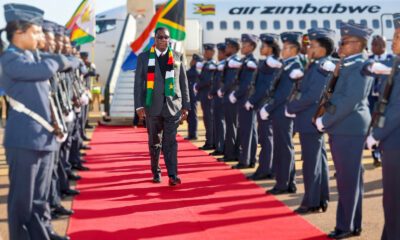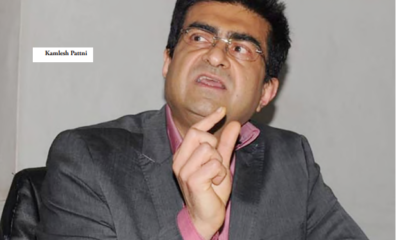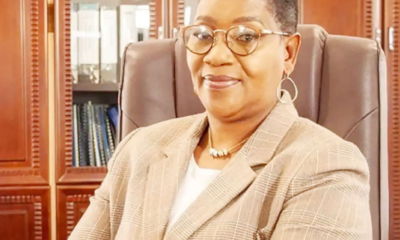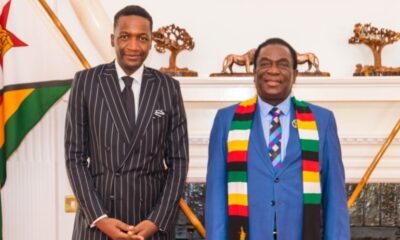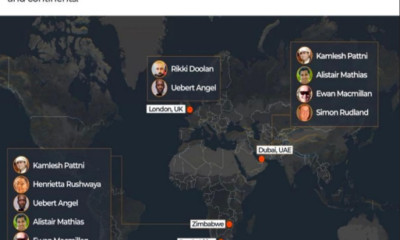NATHAN GUMA
ZIMBABWE has been listed among countries with the highest deposits of undeclared gold from artisanal smallholder miners, while the country is featuring on a list of 12 countries that are smuggling over 20 000 tonnes of gold per year.
The lack of transparency in Zimbabwe’s mining sector has been under scrutiny with the country losing an estimated US$1.2 billion in annual gold leakages, amid growing calls for the country to formalise artisanal miners.
A new report by Swiss Aid titled “On the Trail of African Gold”, has further poked holes into Zimbabwe’s mining sector, placing the country among three countries with the highest undeclared gold deposits on the continent.
Zimbabwe has joined the likes of Mali, Ivory Coast, Burkina Faso, Ghana, Mali, Guinea, Niger, Togo, Uganda and Zambia, which are countries smuggling more than 20 tonnes of gold a year.
“Doubts about the legality of declared artisanal and smallholder miners (ASM) gold production are all the more justified when the official figures for this production are identical to those for exports, or when they come from public agencies with questionable procurement policies,” reads the report.
“For example, in Zimbabwe, the state-owned refinery Fidelity Gold Refinery (FGR) has a ‘noquestions-asked’ purchasing policy, which means that illegal gold can be refined by FGR. Similarly, in Sudan, it has been established that the Central Bank of Sudan has purchased gold linked to conflicts.”
While the UAE has been the major recipient for smuggled gold from Zimbabwe, South Africa has been identified as the main entry point for gold in Zimbabwe.
“In several cases, the destinations of smuggled ASM gold are known and established. For example, gold from Burkina Faso and Côte d’Ivoire is exported to Mali, gold from Nigeria to Niger, gold from South Sudan to Uganda and gold from Zimbabwe to South Africa.”
“In 2022, 66.5% (405 tonnes) of the gold imported into the UAE from Africa was smuggled out of African countries, while between 2012 and 2022, 2 569 tonnes of African gold imported into the UAE was not declared for export in African countries.”
At the average price of gold over these 11 years, this corresponds to a total value of US$115.3 billion. The government says it is unaware of the smuggling activity.
“We do not know the source of the statistics. As you know, we are mobilising gold from artisanal miners so that they can send it to Fidelity Printers and Refiners. We also have teams that are mobilising miners on safe mining methods and we have mobile mining units,” Mines deputy minister Polite Kambamura told The NewsHawks.
“Our currency is backed with gold and we cannot afford to have gold smuggled out of the country, because gold is our currency. All our gold goes through official channels and we have very competitive gold prices.”
However, a civil society organisation, the Centre for Natural Resource Governance (CNRG), says while small-scale miners are already formalised, most of them have been using artisanal miners in the extraction process.
“Small-scale miners are already formalised. Our crisis now is over the reversal of the formalisation of small-scale mining through employing artisanal miners to work for small-scale miners. This method is proving to be cheap and convenient — often under severe exploitative conditions and unsafe mining conditions. This is leading to numerous mine accidents,” CNRG founder Farai Maguwu told The NewsHawks.
“There is no accountability. Because politicians are benefitting from abusing artisanal miners, they would rather continue with their informal operations.”
Small-scale miners have also been producing more gold than primary producers over the past years. Big companies and artisanal miners
In Zimbabwe, big mining companies have been using artisanal miners in the mining process, a method which watchdogs like the CNRG say is being implemented to cut costs.
For instance, in Penhalonga, Redwing Mine is now occupied by politically-connected elites like Zanu PF gold baron Pedzai “Scott” Sakupwanya Zimbabwe among gold medallists of smuggling and other senior civil servants.
Sakupwanya was exposed in the fourth episode of Al Jazeera’s Gold Mafia investigative documentary as President Emmerson Mnangagwa’s man who helped him build a war chest ahead of the 2023 general election.
His company BetterBrands, with over 132 claims in Penhalonga alone, currently manages mining and milling operations at Redwing Mine.
BetterBrands also contracts artisanal and smallscale miners to extract and surrender ore to them, which has become a new mining model, as the company seeks to reduce operational costs. Minting money from government incentives.
As reported by The NewsHawks, Sakupwanya was also under fire for minting gold proceeds through government incentive schemes.
For instance, while a delivery of 20kg of gold within a period of 30 days would be eligible for a 5% incentive, a tonne 7% and one to three tonnes 9%, artisanal miners said they were receiving between 1% and 1.5% from the gold incentives, with some getting nothing at all.
In 2021, the company pocked US$460 million in revenues at the expense of artisanal and smallscale miners. Gold smuggling to the UAE Last year, findings by Qatari news channel Al Jazeera’s investigative unit showed that criminal gangs have been legitimising money laundered through gold exports and front men, who wash the dollars through initiatives such as the Advance Payment Scheme.
Using the scheme, smugglers have been externalising money undetected by South Africa’s central bank, with the transactions being declared as advance payments for imported goods by South Africa’s business community.
The racket was allegedly being used by Gold Leaf Tobacco founder Simon Rudland, who has been mired in underworld gold smuggling and money laundering activities in Zimbabwe, unearthed by Al Jazeera’s investigation.
Gold Leaf Tobacco, for instance, was allegedly washing money earned through the sale of illicit cigarettes, externalising it to the UAE through PKSA, a shadowy company owned by Mohammed Khan, notorious for externalising money, according to the documentary.


